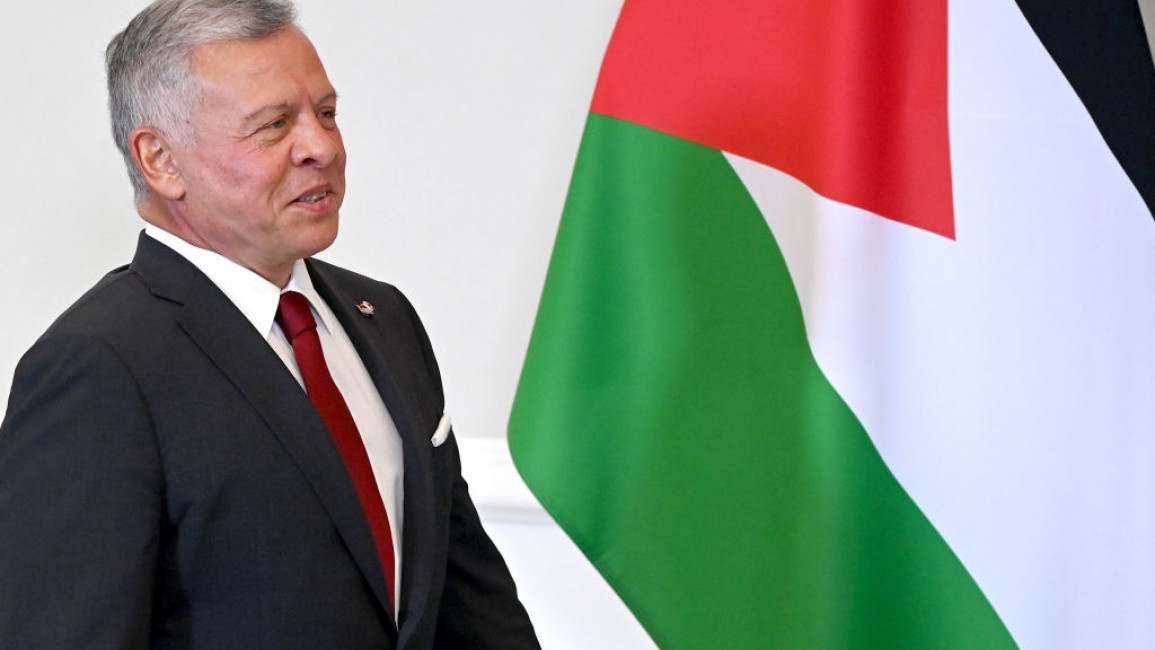Jordan's King Abdullah says Muslims have 'duty to deter Israeli escalation' in Jerusalem
Jordan's King Abdullah II said Sunday that Muslims have a duty to "safeguard" Jerusalem's holy sites, in a meeting in Amman with Muslim and Christian religious leaders from the occupied city.
A statement from the royal court said the king told the delegation, led by Palestinian President Mahmoud Abbas, that Jordan "will always be with you", which is the custodian of Jerusalem's holy sites.
"It is the duty of every Muslim to deter Israeli escalations against... holy sites in Jerusalem," the king said according to the statement.
The meeting follows extreme tensions with the Israeli government, particularly after recent remarks by the extremist Israeli Finance Minister Bezalel Smotrich denying the existence of the Palestinian people.
During Sunday's meeting the Jordanian king "called on the international community to take a stand against the exclusionary and racist statements made recently by some Israeli officials", the statement said.
This year has seen an uptick in violence against Palestinians, with at least 94 killed in 2023 alone.
King Abdullah touted a longtime commitment to preserving "peace and harmony" at Jerusalem's Al-Aqsa mosque compound - Islam's third holiest site which Jordan administers but is the target of regular stormings by Israeli extremists.
King Abdullah hailed "Jerusalemites'... efforts to safeguard" the holy sites and "stressed the need to stop the displacement of Christians, as well as the repeated attacks on churches, religious figures and Christian property in Jerusalem", according to the statement.
Christian holy sites in Jerusalem have witnessed a worrying rise in attacks by Israeli extremists.
On Friday, church leaders in Jerusalem appealed to the Israeli government to ensure Christians are able to worship freely during Easter and its run-up, expressing concern at mounting violence and acts of desecration over the past year.
On Friday, Israeli police shot dead a Palestinian citizen of Israel at the compound claiming he had grabbed and fired an officer's gun.
Mohammed Al-Asibi's family rejects this claim and said he was protecting a woman.
Last month, the foreign ministry in Amman said it had summoned Israel's ambassador to receive a "strongly worded letter of protest" following a widely-condemned speech by Smotrich when he said, "there isn't a Palestinian people".
He spoke from a lectern which featured a map of so-called Greater Israel, including the occupied West Bank and Jordan.
Jordan in 1994 became the second Arab country to recognise and sign a peace treaty with neighbouring Israel, after Egypt.



